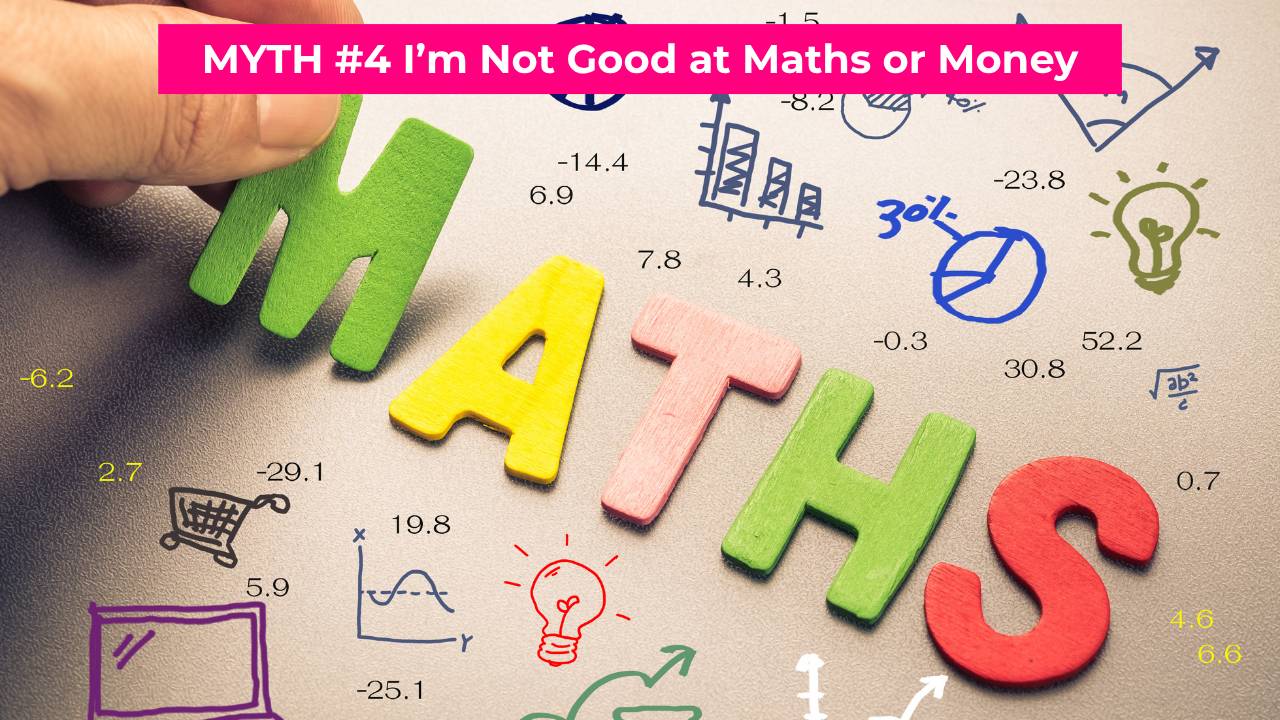
Myth #4: “I’m Not Good with Maths, So I Can’t Be Good with Money”
Nov 06, 2025If you’ve ever said, “I’m not good with maths, so I must be bad with money,” you’re not alone—and you’re not doomed. Maths ability and money mastery are not the same thing. In fact, most of what helps you feel confident and in control of your finances has little to do with solving equations and everything to do with beliefs, clarity, simple tools, and consistent action.
Why we mix up maths and money
Many of us were taught maths without real-world context. We learned fractions from worksheets instead of pizza slices, and algebra without connecting it to compounding—one of the most powerful concepts in wealth building. It’s easy to assume that because school maths felt abstract, money must be hard too. But being “good with numbers” isn’t the same as being good with personal finance. You can ace accounting at uni and still feel lost with budgeting, investing, or cashflow—because those require habits and frameworks, not just calculations.
Five levers that matter more than maths
1) Beliefs
“I’m not good at maths” is a belief, not a fate. Ask yourself: who told me that? What’s the evidence? Even if maths wasn’t your strongest subject, that has almost zero bearing on whether you can organise bills, automate investing, or build an emergency fund. Labels can be useful—until they become cages. Let this one go.
2) Technology
We live in the golden age of calculators. Your phone can run compound-interest projections in seconds. Spreadsheets total your spending. Investing platforms automate contributions. AI can explain concepts in plain English. You don’t need to memorise formulas; you need to know what numbers to plug in and how to interpret the result.
3) Knowledge (the right kind)
You don’t need a finance degree; you need relevant, simple knowledge: how compounding works, what an ETF is, why an emergency fund matters, and how to set up a money flow that fits your life. You never need to hand-calculate dividend yields—just learn what “good enough” looks like so you can compare options.
4) Clear actions
Overthinking is the enemy of action. Start with micro-moves: open a high-interest savings account, set a $50 automatic transfer, list your subscriptions, or schedule a monthly “money power hour.” Clarity comes from doing.
5) Consistency
Money rewards rhythm. Automate what you can—saving, investing, bills—so progress happens even on your busiest weeks. Small, regular steps beat heroic one-offs every time.
Money working for you vs. you working for money
Business income (even leveraged or “passive” income) still needs effort. Investing is different: it’s your money doing the heavy lifting through time and compounding. That’s why the tiny, boring actions—setting up that recurring investment, reinvesting dividends, reviewing once a quarter—are so potent.
Your next step (no algebra required)
Challenge the belief. Use tech. Learn one simple concept this week. Take one tiny action. Repeat. That’s it. The myth that “maths = money” is officially busted.

